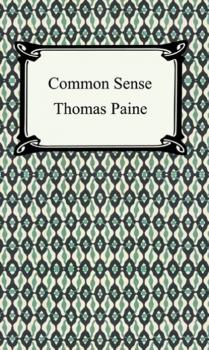Зарубежная публицистика
Различные книги в жанре Зарубежная публицистикаAmerica's Death Spiral - Blaming Obama, Democrats and Political Correctness
eBookIt Publishers announced release of a timely and politically charged autobiography of Nick Velli entitled "America's Death Spiral – Blaming Obama, Democrats and Political Correctness". <br><br>The author is an American octogenarian who was raised during the Great Depression and experienced the travail's of WWII and the following military interventions of Korea and Vietnam that changed the temperament and patriotism of Americans in many respects forever. Part 1 of the book tracks the dramatic and extraordinary events of the period from 1932 through 2015. Part 2 deals with the grim aspects of the near and distant future that Americans are now facing regarding racial divisiveness, Jihadist External and Internal Terrorism, and prospects of a catastrophic national financial collapse due to explosion of the national debt exceeding $20 trillion dollars. The author examines the ill-advised manipulation of the Democratic Party following LBJ that transformed to the policies of Progressives transitioning to a Socialistic model of government. This was greatly accelerated later by Barack Obama's promise of the "Fundamental Transformation" of the Founding Father's American democratic republic.
Terror in Australia: Workers' Paradise Lost
Terror in Australia: Workers' Paradise Lost, by veteran journalist John Stapleton, is a beautifully written snapshot of a pivotal turning point in the history of the so-called Lucky Country.<br><br>This book is a sidewinding missile into the heart of Australian hypocrisy.<br><br>In 2015 there were well attended Reclaim Australia demonstrations in every major capital city, all protesting what the demonstrators saw as the growing Islamisation of Australia, along with countering anti-racism demonstrations. There were frequent violent clashes, hundreds of police were forced to form lines separating the demonstrators in Sydney and Melbourne, there were a significant number of arrests and injuries, and dozens of people were treated for the effects of capsicum spray. The terror alert was at its highest level ever, the country was engaged in an unpopular and discredited war in Iraq and Syria, and relations between the government and an increasingly radicalised Muslim minority had broken down.<br><br>Despite the billions being spent on national security, authorities believed another terrorist attack was inevitable.<br><br>A demoralised population, saddled with a history of grotesque overregulation, turned inwards, increasingly questioning the failed social creeds of the past.<br><br>On the streets once vibrant entertainment districts were desolate, while closed and shuttered shops became a characteristic of many suburbs.<br><br>An optimistic, freedom loving country with an irreverent, larrikin culture and a wildly optimistic view of its place in the world lost faith in its own story.<br><br>Well documented, switching through multiple points of view, Terror in Australia: Workers' Paradise Lost is a sometimes frightening, sometimes intensely lyrical step inside a democracy in serious trouble.
An Essay Concerning Human Understanding
Laid out in four books, «An Essay Concerning Human Understanding» is John Locke's exposition on the foundation of human knowledge and understanding. In the first and second books Locke begins by rejecting the notion of innate ideas proposed by Descartes and proposes instead that humans are born as blank slates and that all knowledge is derived from experience. The discussion is continued in books three and four with a discussion of the theory as it relates to language, intuition, mathematics, moral philosophy, natural philosophy, faith, and opinion. A compelling and important philosophical work, «An Essay Concerning Human Understanding» is a must read for all students of philosophy.
On Liberty and Other Essays
This volume, containing Mill's «On Liberty», «Utilitarianism», «Considerations of Representative Government», and «The Subjection of Women», draws together the basic ideas of liberalism that, although radical in their time, have gained recognition as comprehensive and relevant fundamentals of government, economics, and logic. Since the publication of «On Liberty» in 1859, no other nineteenth century philosopher has delved so deeply into the implications of independence from the state and what it means to be truly free. The four works contained here are accessible texts that clearly delineate Mill's philosophies, the most remarkable of which are the basis for liberty as the sovereignty of man over his own body and mind, Mill's famous «Harm Principle,» true and false democratic government, and equality of the sexes.
Common Sense
Written prior to the revolutionary war, «Common Sense» was a widely distributed phamphlet that argued for the complete independence of America from Britain. Its importance in terms of American history cannot by understated. The influence that this publication had on the American sentiment towards fighting the revolutionary war may have been more significant than any other single factor. Read for yourself the arguments that were made then for American independence as the American colonies were on the brink of war.
Two Treatises of Government and A Letter Concerning Toleration
John Locke's «Two Treatises of Government» are considered to be some of the most important works of western philosophy ever written. In the first treatise Locke disputes the divine right of monarchial rule principle that is put forth in the book «Patriarcha» by Sir Robert Filmer. In the second treatise Locke sets forth the basic principles of natural law that lay the foundation for basic human rights and the government of man. Also contained within this volume is the shorter work, «A Letter Concerning Toleration.»
The Communist Manifesto (with an Introduction by Algernon Lee)
First published in 1848, “The Communist Manifesto” is a political pamphlet by German philosophers Karl Marx and Friedrich Engels, which initiated in one of the greatest movements of political change that the world has ever seen. At the heart of the economic writings of Marx and Engels is the materialist conception of history, or that productive capacity is the primary organizing factor of society. This conception gives rise to the fundamental inequality that exists between the socioeconomic classes. By controlling the means of production, the wealthy, or “bourgeoisie,” gain a power over the working class, or “proletariat.” The writings of Marx and Engels would brilliantly expose the causes of the vast division between socioeconomic classes that had existed throughout history. From its initial publication “The Communist Manifesto” was intended to help unite the working class in a common goal of forming a political party based on the philosophies of communism. To that aim, it was very successful and helped to unleash a wave of sweeping political change across the globe. This edition includes an introduction by Algernon Lee.
The Prince (Translated by Ninian Hill Thomson with an Introduction by Henry Cust)
Originally published in 1532, nearly five years after the author’s death, “The Prince” is a pioneering work of modern political philosophy for which Niccolo Machiavelli is best remembered. Intended to be a treatise on ruling for princes, “The Prince” is one of the world’s first and most impactful works of political science. In the book Machiavelli offers many bits of practical advice on how to rule and even though the book was written in the early 16th century the ideas are still very relevant today. Where “The Prince” differs from other political literature is in its separation of the lofty idealism of morality and ethics from the practical demands of governing. It is this very aspect of Machiavelli’s work that has made his name synonymous with an almost immoral opportunism. It has been argued that Machiavelli himself was not quite as devious in reality as his work would suggest but that he takes up this style in his work in order to present a provocative treatise that recognizes the pragmatic demands of governance. The impact on Western civilization of Machiavelli’s work cannot be overstated, and in “The Prince” we find a concise exposition of his political philosophy. This edition follows the translation of Ninian Hill Thomson, includes an introduction by Henry Cust, and a biographical afterword.
Common Sense (with a Biographical Introduction by John M. Robertson)
First published on January 10, 1776, Thomas Paine’s “Common Sense” was one the most influential and best-selling works from the colonial period. It has been suggested that it may have been the single biggest factor in inspiring the people of the Thirteen Colonies to declare and fight for their independence from Great Britain beginning in the summer of 1776. One of the central political arguments amongst the colonists of the pre-revolutionary period was whether or not they should indeed seek independence and freedom from British rule. The consequences of speaking out against the British Empire were potentially lethal, and as such, the decision of when, where, and how to do so had to be considered with great care. Given its treasonable content and so as not to distract from the central message of the work, Thomas Paine chose to publish the work anonymously. “Common Sense” provided a straightforward argument in clear, simple language, to the American people as to why they should seek independence, and its importance to the shaping of American history cannot be overstated. This edition includes a biographical introduction by John M. Robertson.
Disobedience and Democracy: Nine Fallacies On Law and Order
Howard Zinn's cogent defense of civil disobedience with a new introduction by the author. In this slim volume, Zinn lays out a clear and dynamic case for civil disobedience and protest, and challenges the dominant arguments against forms of protest that challenge the status quo. Zinn explores the politics of direct action, nonviolent civil disobedience, and strikes, and draws lessons for today.









